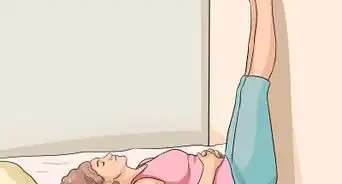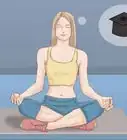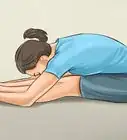This article was co-authored by Ken Breniman, LCSW, C-IAYT. Ken Breniman is a Licensed Clinical Social Worker, Certified Yoga Therapist and Thanatologist based in the San Francisco Bay Area. Ken has over 15 years experience of providing clinical support and community workshops utilizing a dynamic combination of traditional psychotherapy and yoga therapy. He specializes in eclectic non-denominational yoga guidance, grief therapy, complex trauma recovery and mindful mortal skills development. He has a MSW from Washington University in St. Louis and an MA Certification in Thanatology from Marian University of Fond du Lac. He became certified with the International Association of Yoga Therapists after completing his 500 training hours at Yoga Tree in San Francisco and Ananda Seva Mission in Santa Rosa, CA.
There are 8 references cited in this article, which can be found at the bottom of the page.
This article has been viewed 39,680 times.
The Vajrasana pose is one of the simpler yoga poses, and it's actually considered a sitting pose, meaning you can hold the pose for long periods of time while you breathe or meditate. With this pose, you essentially kneel and then sit back on your legs to take the weight off your knees. If you find the pose uncomfortable, you can make a few adjustments to increase your comfort.
Steps
Getting into Position
-
1Kneel down on the floor or a yoga mat. The Vajrasana pose is a kneeling position so start by getting on your knees. You may want a yoga mat for this position, as the hard floor may become uncomfortable after a while.[1]
- If this position is very painful for you, don't try to hold it. Work on another position instead.
-
2Pull your legs together and lay your feet out straight. As you kneel, ensure your knees and ankles are together. The tops of your feet should be laid out flat on the floor and the bottoms should be facing upward.[2]Advertisement
-
3Sit back on your legs as you exhale. As you position yourself, take some of the weight off your knees by resting your weight on your legs. However, don't actually sit on your heels. Instead, your back end should sit just between your heels.
- As you settle yourself, place your hands on your thighs.
- While getting into position, move your pelvis forward and backward a bit until you find a spot that feels comfortable.[3]
-
4Adjust your spine so you're sitting up straight. Imagine you have a string at the top of your head, pulling your body upward. At the same time, press your tailbone towards the floor. These 2 motions will help you straighten out your spine.[4]
- Breathe in and out slowly as you work to straighten your spine. Be sure that you breathe in fully with each inhale, then push all of the air out of your lungs when you exhale.[5]
-
5Try to hold the position for 30 seconds as you meditate on your breathing. Continue breathing slowly in and out as you sit in this position, and notice the way your breath feels as it goes in and out.[6] Maintain good posture in your spine. If you can't hold it for 30 seconds, just hold it as long as you can.[7]
- Think about relaxing your shoulders and consciously move them down from your neck and ears.
- Over time, work on holding this pose for longer. You can even meditate in this position.
- If you have trouble keeping your focus while you're holding the position, try finding a focal point on the wall across from you. You can even light a candle and focus on the flame.[8]
Making the Pose More Comfortable
-
1Place a blanket under your shins for ankle pain. Fold the blanket up a few times and use it to prop up your feet as you kneel. Your toes should hang off the back. Play around with how many layers you need to find the most comfortable position.[9]
- The blanket will also help take pressure off your toe knuckles.
-
2Fold a blanket to place behind your knees if you're having pain there. This blanket will help take pressure off your knee joints, which can help you maintain this position for longer. You can roll the blanket or simply fold it, then tuck it just behind your knees as you get into position.[10]
-
3Add a yoga block to make sitting more comfortable. Place the block horizontally between your feet. As you get into position, sit back on the block. It will help support your weight, taking some of the pressure off both your knees and ankles.[11]
- You can find yoga blocks at athletic stores, some big box stores, or online.
Expert Q&A
-
QuestionHow can I make my yoga environment more relaxed and peaceful?
 Ken Breniman, LCSW, C-IAYTKen Breniman is a Licensed Clinical Social Worker, Certified Yoga Therapist and Thanatologist based in the San Francisco Bay Area. Ken has over 15 years experience of providing clinical support and community workshops utilizing a dynamic combination of traditional psychotherapy and yoga therapy. He specializes in eclectic non-denominational yoga guidance, grief therapy, complex trauma recovery and mindful mortal skills development. He has a MSW from Washington University in St. Louis and an MA Certification in Thanatology from Marian University of Fond du Lac. He became certified with the International Association of Yoga Therapists after completing his 500 training hours at Yoga Tree in San Francisco and Ananda Seva Mission in Santa Rosa, CA.
Ken Breniman, LCSW, C-IAYTKen Breniman is a Licensed Clinical Social Worker, Certified Yoga Therapist and Thanatologist based in the San Francisco Bay Area. Ken has over 15 years experience of providing clinical support and community workshops utilizing a dynamic combination of traditional psychotherapy and yoga therapy. He specializes in eclectic non-denominational yoga guidance, grief therapy, complex trauma recovery and mindful mortal skills development. He has a MSW from Washington University in St. Louis and an MA Certification in Thanatology from Marian University of Fond du Lac. He became certified with the International Association of Yoga Therapists after completing his 500 training hours at Yoga Tree in San Francisco and Ananda Seva Mission in Santa Rosa, CA.
Certified Yoga Therapist Allow each of your senses to orient to the space. This can be as simple as feeling your feet in your socks or shoes. You might also notice any tastes, sounds, sights, or smells that are around you. That will help you be more present in the moment.
Allow each of your senses to orient to the space. This can be as simple as feeling your feet in your socks or shoes. You might also notice any tastes, sounds, sights, or smells that are around you. That will help you be more present in the moment.
References
- ↑ https://food.ndtv.com/health/benefits-of-vajrasana-one-pose-to-solve-all-your-tummy-troubles-1407071
- ↑ https://www.msn.com/en-us/health/exercise/yoga/thunderbolt-pose/ss-BBtO59V
- ↑ https://www.yogajournal.com/blog/finding-comfort-in-kneeling
- ↑ https://www.msn.com/en-us/health/exercise/yoga/thunderbolt-pose/ss-BBtO59V
- ↑ Ken Breniman, LCSW, C-IAYT. Licensed Clinical Social Worker & Certified Yoga Therapist. Expert Interview. 24 April 2020.
- ↑ Ken Breniman, LCSW, C-IAYT. Licensed Clinical Social Worker & Certified Yoga Therapist. Expert Interview. 24 April 2020.
- ↑ https://food.ndtv.com/health/benefits-of-vajrasana-one-pose-to-solve-all-your-tummy-troubles-1407071
- ↑ Ken Breniman, LCSW, C-IAYT. Licensed Clinical Social Worker & Certified Yoga Therapist. Expert Interview. 24 April 2020.
- ↑ https://www.yogajournal.com/blog/finding-comfort-in-kneeling
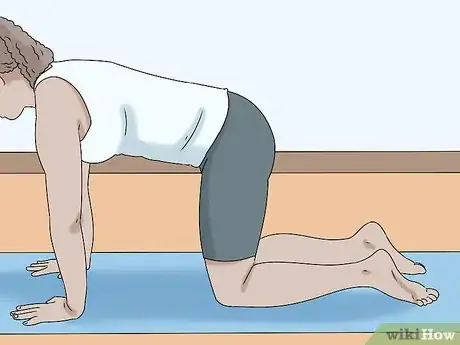




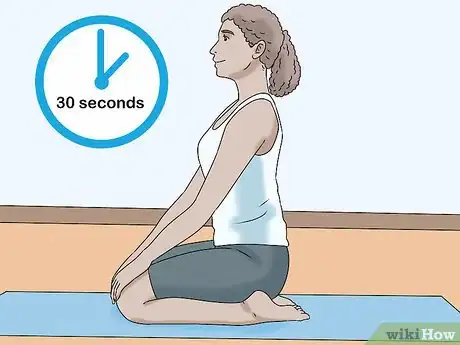
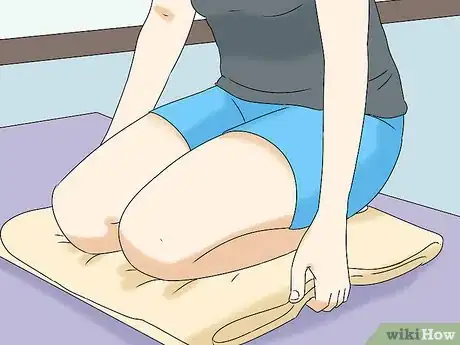

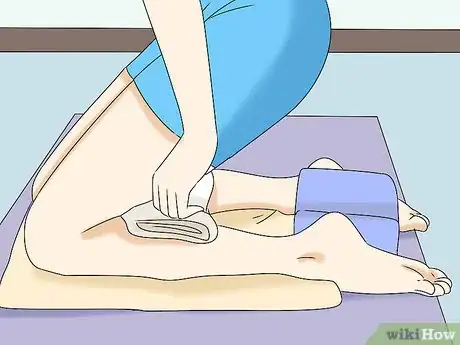
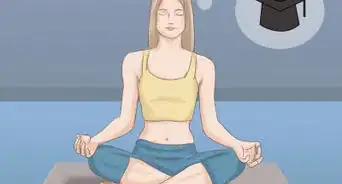


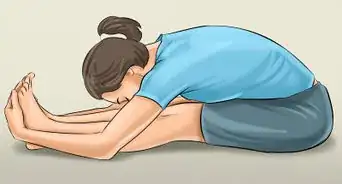


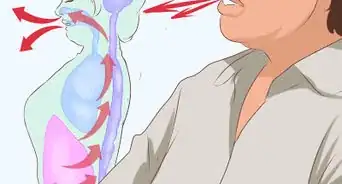

-Step-16.webp)


